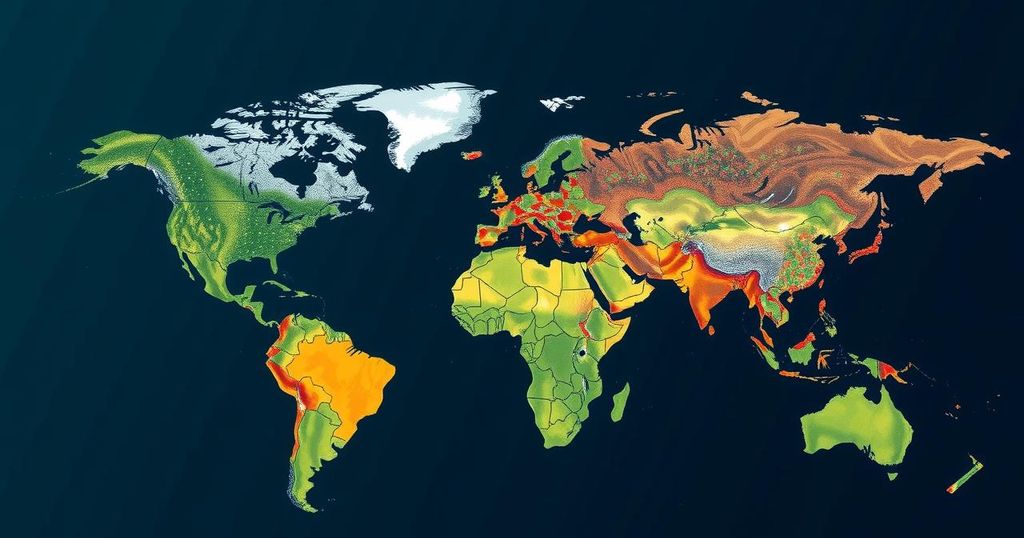Wealthy Nations Begin Compensating Poorer Countries for Climate Damage

Wealthier nations have begun providing climate change compensation to poorer countries like Malawi, where individuals affected by Cyclone Freddy have received essential funds for recovery. With about $720 million pledged, experts caution that this is insufficient, given the increasing severity of climate disasters. Negotiations at COP29 aim to determine fair contributions and expand the funding’s focus to include longer-term recovery efforts.
In the wake of Cyclone Freddy, which wreaked havoc across Malawi, affected individuals such as Christopher Bingala, a subsistence farmer, have begun receiving vital financial compensation known as “loss and damage” funding. This new type of financial support, initiated by wealthier nations, aims to address damages inflicted by climate change on poorer countries that contribute negligibly to global emissions. In this context, approximately $720 million has thus far been pledged to assist nations like Malawi, struggling to cope with the impacts of increasingly severe climate-related disasters.
The funds received have had a transformative effect on families like Bingala’s. With about $750, Bingala was able to rebuild his home after losing everything to the floods, enabling him to create a more secure environment for his children. As coping mechanisms evolve, it becomes clear that such support is essential, as many low-income households lacking insurance or financial safety nets are disproportionally impacted by extreme weather events.
At the ongoing COP29 climate summit in Baku, Azerbaijan, negotiations are taking place regarding the specific financial obligations of richer countries towards developing nations, particularly in relation to a broader climate finance package that encompasses loans and investments. Prime Minister Philip Davis of the Bahamas stresses the urgency for the global north to acknowledge their roles in creating climate challenges that disproportionately affect vulnerable populations.
As evidence mounts regarding the escalating need for climate-related funds, the initiative piloted in Malawi offers insights into a promising system for delivering assistance. Despite the pledges made, much of the funding remains unallocated. Experts project that the need for such financial mechanisms could soar to $250 billion annually by 2030, compelling nations to expand support in both humanitarian and ecological aspects beyond disaster recovery.
The concept of “loss and damage” compensation originates from the realization that low-income countries suffer the most severe impacts from climate change, despite contributing the least to greenhouse gas emissions. This mechanism was formalized in response to acute weather events, requiring wealthier nations that are primarily responsible for climate change to provide financial assistance and reparations. The need for compensation highlights the inequities in global climate responsibilities and the urgent necessity for comprehensive funding structures to address the needs of the most vulnerable populations.
The initiation of loss and damage compensation mechanisms represents a critical step in addressing the inequitable burden placed on poorer nations by climate change. As evidenced by personal stories, this funding has the potential to enact significant positive change in the lives of those affected. However, it is imperative that the international community not only commits adequate funding but also quickly implements these financial support systems to address the growing crisis effectively.
Original Source: www.upr.org






